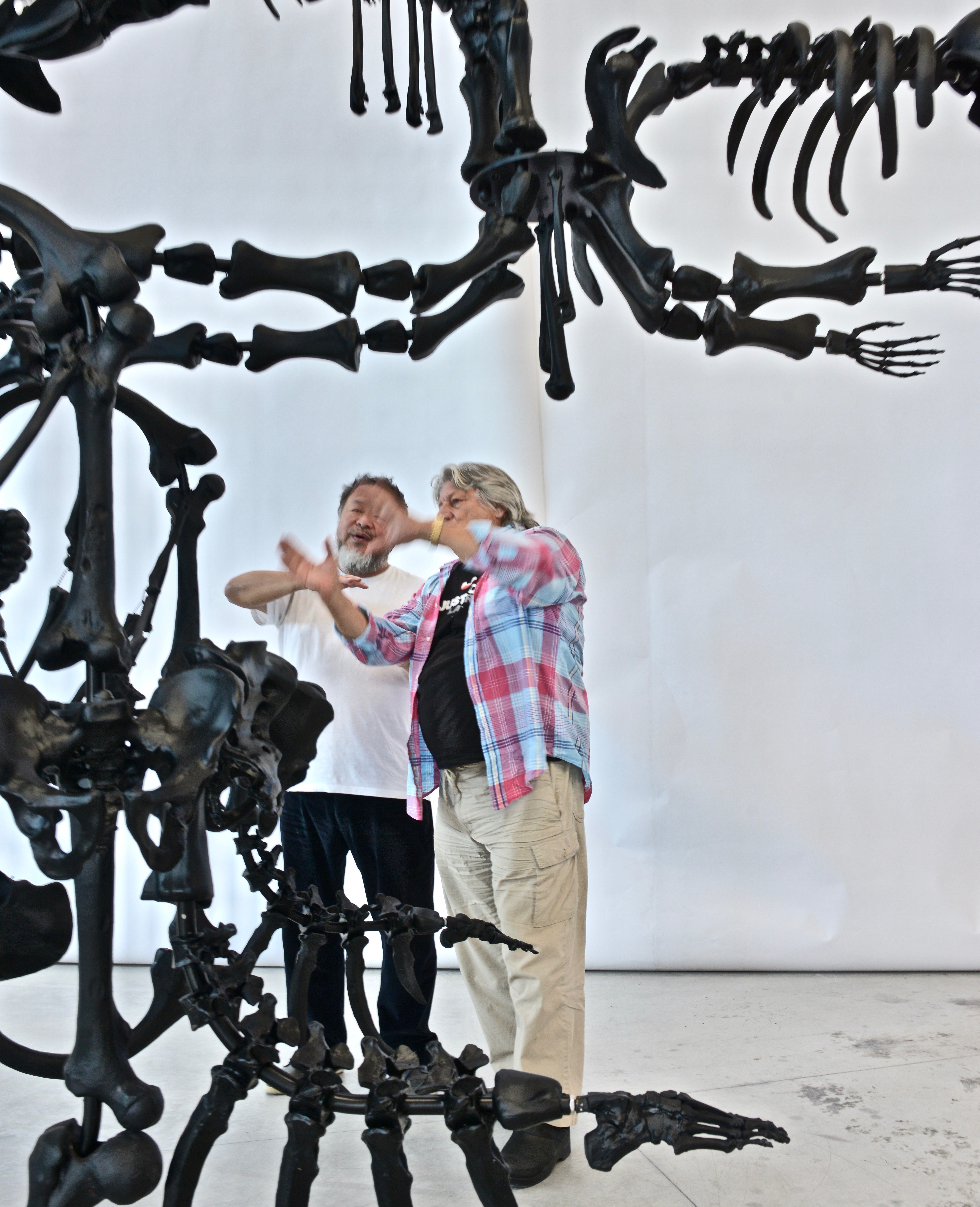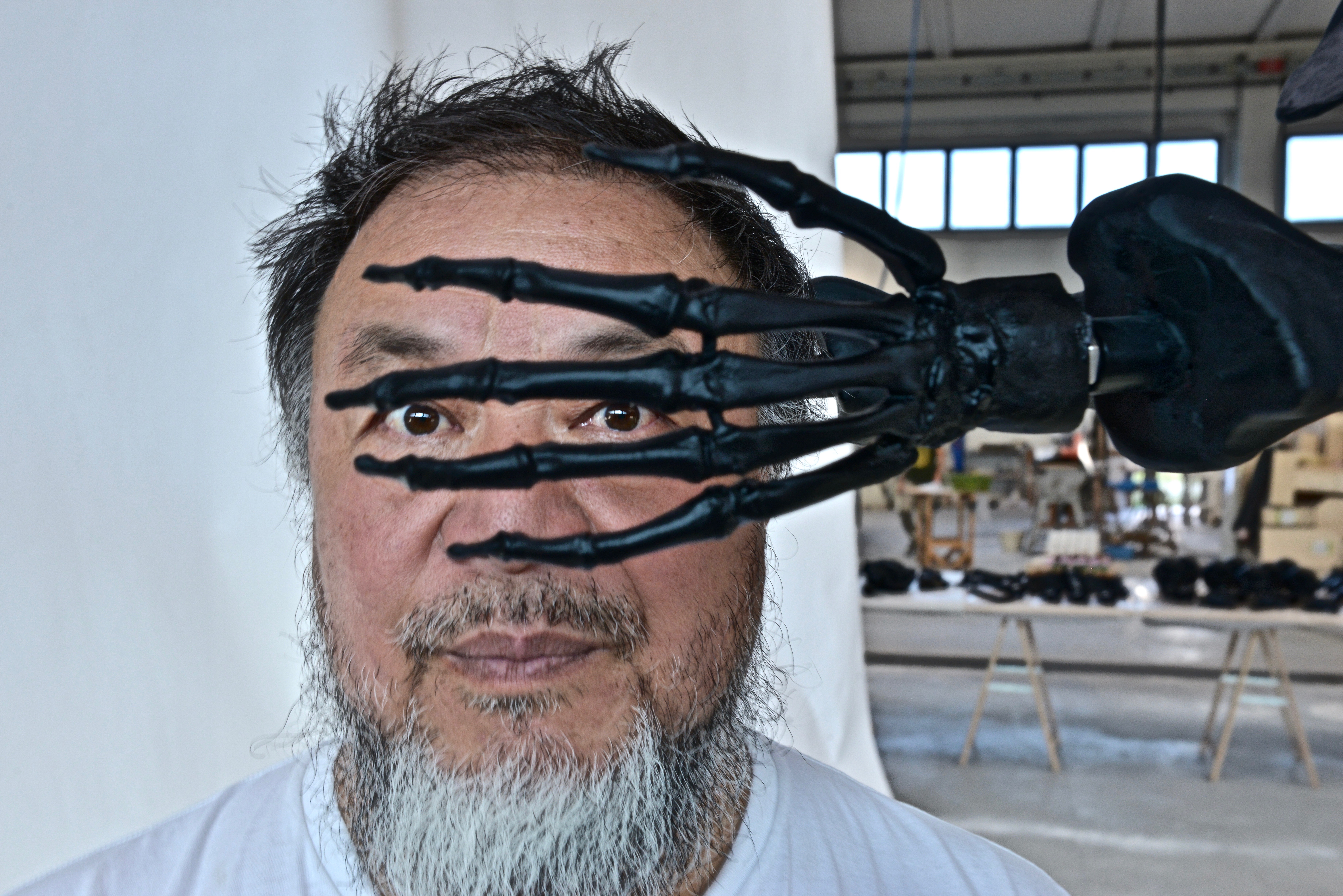The gaze will sink into a network of intertwined roots, between a series of LEGO, to touch a selection of iconic works and a new series of glass works.
After the Roman success, the Human Comedy – Memento Mori by Ai Weiwei, curated by the artist together with Adriano Berengo and Carmelo A. Grasso, director of the Abbey of San Giorgio Maggiore – Benedicti Claustra Onlus, heads towards Venice where, from 28 August to 27 Novemberwill bring out the poetry of glass.
“Glass – explains the artist – is a special material and part of our daily life, it testifies to the joy, anxiety and worries of our life. In its presence we reflect on the relationship between life and death, and between tradition and reality. “.

Ai Weiwei and Adriano Berengo, 2020, Venice | Photo: © Edward Smith
Founded in 1989 by Adriano Berengo with the aim of creating a space for creatives of all disciplines in order to freely experiment with the medium of glass, Berengo Studio has traced a new path in the world of art over the last thirty years. Inspired by the work of Peggy Guggenheim and Edigio Costantini in the 1960s, who urged artists such as Picasso and Chagall to produce glass sculptures, Berengo decided to deepen this creative vision, inviting contemporary artists from all over the world to collaborate with the skilled glass masters of Murano.
Thus, in collaboration with the Abbey of San Giorgio Maggiore – Benedicti Claustra Onlus, Berengo Studio and Fondazione Berengo, it will now be Ai Weiwei to present a solo exhibition in the lagoon that will combine some of his most famous and recent works in wood and porcelain, an unprecedented selection of glass sculptures.
These works are the result of an experiment begun in Beijing in 2009 and culminated in a three-year project conceived in Murano.
Over six meters wide and almost nine meters high, the monumental installation is the largest suspended Murano glass sculpture ever made. A cascade of bones, organs and unexpected objects invite a poignant reflection on the alienating relationship between man and the natural world, launching a message ready to resonate strongly in the fragile ecosystem of the Venetian lagoon, while the careful study of light developed by the Luce5 team will enhance the details of the monumental chandelier.

Ai Weiwei, The Human Comedy, 2020 | Photo: © Francesco Allegretto
“This vast suspended sculpture in black glass – comments Adriano Berengo, founder of Berengo Studio and the Berengo Foundation – is unique, nothing like it has ever been seen or created before. Part of its beauty remains a mystery, a human tragedy, a comedy , arouses a tangle of conflicting feelings and suggestions that each of us must try to dissolve in our own way. It is a work that arouses emotions, which forces us to deal not only with our own mortality, but also with the role that our lives have in the great theater of human history “.
After having made its debut in Rome, in the significant setting of the Baths of Diocletian, with its 2700 kilograms, the monumental “chandelier” returns to its Venetian origins, alongside eight unpublished works in glass. Brainless Figure in Glass2022, a self-portrait conceived through modern technologies and manual sculpture, will dialogue with Glass Root2022 – which recalls the artist’s woodworking after the discovery of deforestation remains in Brazil in 2017 – and with everyday objects, such as Glass Takeout Box2022, symbol of globalization, e Glass Toilet Paper2022, reflection on the fragility of society.

Ai Weiwei, 2020, Venice | Photo: © Edward Smith
Ai Weiwei’s tribute to Venice will also include Illumination2019 – a meaningful selfie taken by Weiwei in Chengdu, China in 2009 as police escorted him to a hotel elevator – and more Dropping at Han Dynasty Urn, 2016, a series of black and white photographs reconstructed using LEGO bricks. Also on display are two of Ai Weiwei’s latest LEGO works: Sleeping Venus (After Giorgione)2022 and Know Thyself2022, two debut works commissioned by Galleria Continua, e Untitled (After Mondrian)2022.
The Human Comedy – Memento Mori it will be open, with free admission, every day, except Tuesdays, from 28 August to 27 November from 10 to 18.
![]() Read also:
Read also:
• Ai Weiwei in Rome between art and theater. Arriving The Human Comedy and theTurandot

